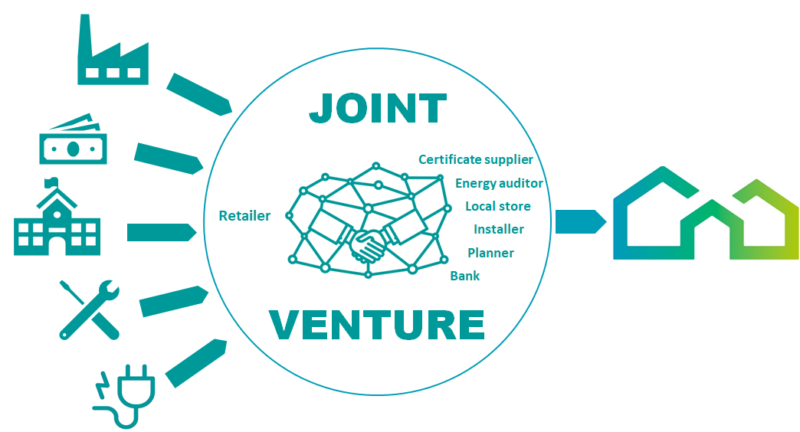[ad_1]
BERLIN – Many observers have long assumed that the future of geopolitics will be decided in a sea battle over the Taiwan Strait or some rocky outcropping or atoll in the South China Sea. Yet we could probably learn more by examining the treatment of a few thousand desperate refugees in the 21st century’s geopolitical backwaters.
Start with the English Channel. Once the site of some of the most dramatic confrontations in history — from the Spanish Armada and the Napoleonic Wars to the Normandy Landings — it is no longer a theater for great-power politics. Instead, the recent deaths of 27 civilians whose inflatable boat capsized after leaving the French coast has turned the channel into a site of humanitarian tragedy.
Rather than working together in solidarity with France to root out the migrant smugglers responsible for the deaths, British Prime Minister Boris Johnson immediately sought to play to a domestic political audience by blaming the French in an open letter published on Twitter. Far from just another juvenile political stunt, Johnson’s dereliction of leadership will most likely have dreadful and far-reaching consequences.
Facing re-election next spring, in a campaign where migration will be a sensitive issue, French President Emmanuel Macron pushed back against Johnson’s boorishness and disinvited the British home secretary from a gathering of European interior ministers in Calais. Owing to a lack of trust on both sides of the channel, each government believes that the other is using the conflict as part of a bigger power play that extends to trade, defense and foreign policy.
While migration has become a political football in Western Europe, it has been fully weaponized in an obscure strip of land between Belarus and Poland. Hardly a popular destination for travelers from the Middle East, Belarus has been flying in migrants from Iraq, Afghanistan and Syria, and then funneling them to the border with the promise of entry into the European Union. Belarusian President Alexander Lukashenko’s motive is clear: to pressure European governments to relax the sanctions imposed on his regime following last year’s fraudulent presidential election and tightened after he forced down a commercial airliner to arrest one of its passengers.
Lukashenko is under no illusion that a few thousand migrants would be enough to overwhelm Poland, or even Lithuania. Rather, he understands that the most important battleground nowadays is people’s minds, not territory. Aiming to re-create the images from the EU’s 2015 migration crisis, his use of migrants is ultimately an act of information warfare.
Political scientist Kelly M. Greenhill has shown that Lukashenko is far from the first to turn migrants into a tool of government policy. She documents more than 75 occasions when governments — including those of Morocco, Russia, Libya and Turkey — forced civilians from their homes (or encouraged them to flee) in order to achieve some political, military, or economic objective. The weaponization of migration has become a frequent complement to other forms of pressure such as sanctions, information and cyber warfare and trade and infrastructure policies.
In this context, both the Belarusian campaign and the tussle over the English Channel are symptomatic of a changing foreign-policy environment in which wars are being replaced by new forms of aggression. The connections between people and countries are the new preferred currencies of power.
The military theorist Carl von Clausewitz famously described war as the continuation of politics by other means. But in a nuclear age, war is often an unfathomable option, so global politics had to be continued by still other means — what I call “connectivity conflicts.” Governments are manipulating the very things that link countries together: supply chains, financial flows, the movement of people, pandemics, climate change, and, above all, the internet.
While the coronavirus pandemic pits all of humanity against a single contagious disease, another pandemic is being fueled deliberately from the shadows. Toxic behaviors are becoming contagious as national leaders respond to the weaponization of connectivity by reciprocating it.
The resulting downward spiral will be difficult to reverse, because connectivity conflicts tend to play out under a cloud of hypocrisy and plausible deniability. Lukashenko can argue, however unpersuasively, that migrants from the Middle East traveled to Belarus of their own accord. Similarly, the EU can claim that its decision to suspend the certification of the Nord Stream 2 pipeline linking Germany directly to Russian gas supplies was made on procedural grounds that have nothing to do with politics.
The informal nature of such conflicts makes it difficult to work out why certain decisions were made. Governments and companies have yet to find the right frameworks for evaluating even their own choices. For example, when it comes to decisions about migration, how should a government prioritize international law, human safety and its own influence? Are trade policies meant to increase profit or national power? Should their goal be to minimize the cost to the consumer in the short-term, or to protect local producers from unfair competition (thereby giving consumers a greater choice over the long term)?
Rather than eliminating tensions between countries, connectivity offers new means of competing and engaging in conflict. No wonder the line between war and peace has become increasingly blurred. Gone is Tolstoy’s world, where alternating periods of open conflict and harmony were clearly delineated. We have entered an era of perpetual conflict, in which most of the combatants and almost all of the victims will be civilians. In what I call “the age of unpeace,” the wretched of the Earth have become unwitting ordnance.
Mark Leonard is director of the European Council on Foreign Relations and the author of “The Age of Unpeace: How Connectivity Causes Conflict” (Bantam Press, 2021). © Project Syndicate, 2021
In a time of both misinformation and too much information, quality journalism is more crucial than ever.
By subscribing, you can help us get the story right.
SUBSCRIBE NOW
[ad_2]
Source link

















